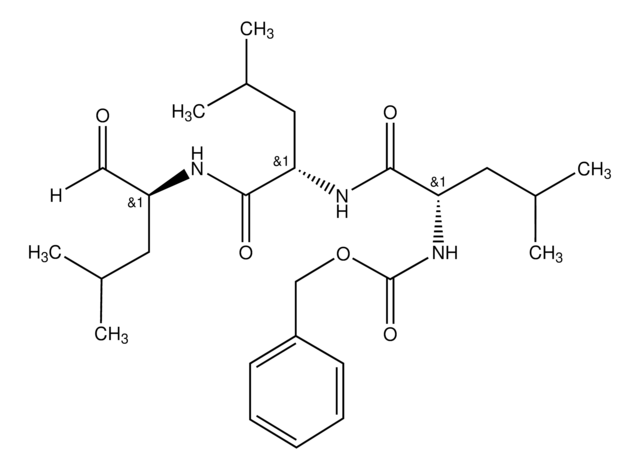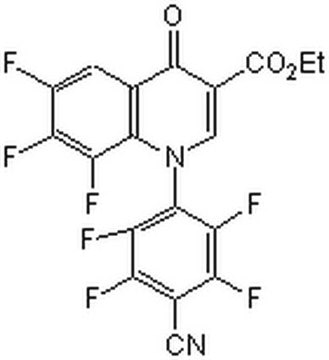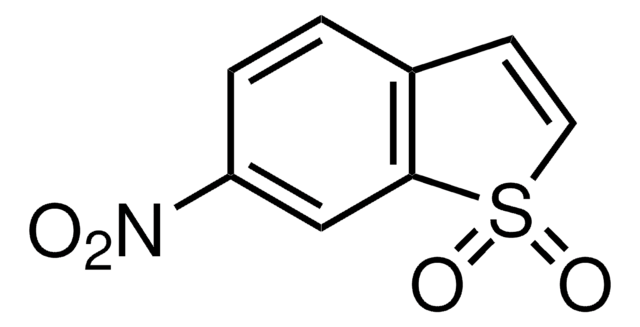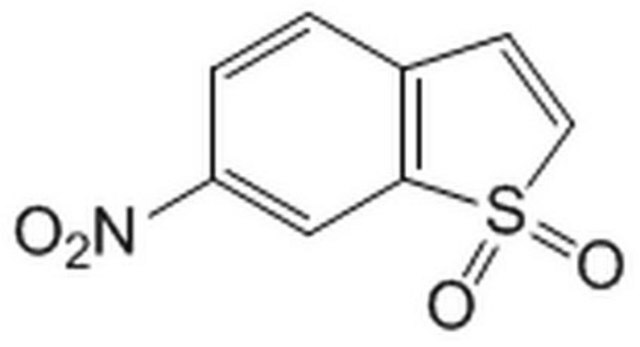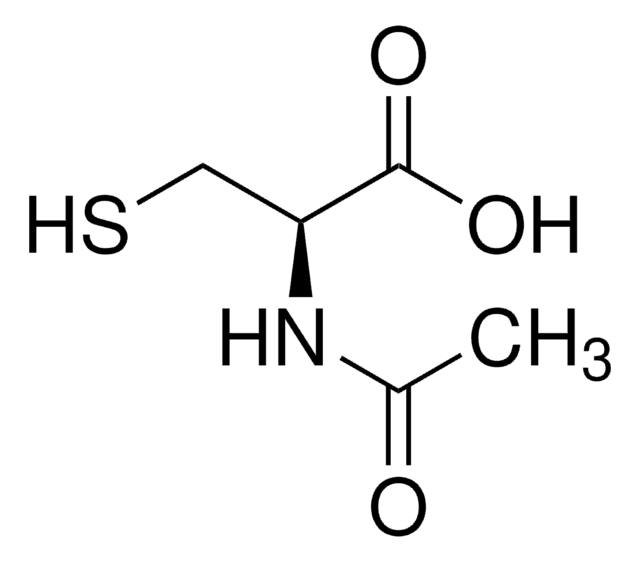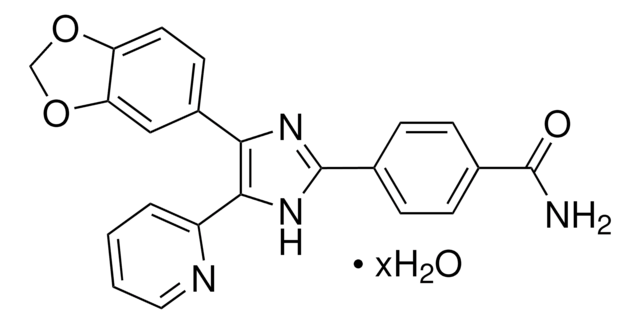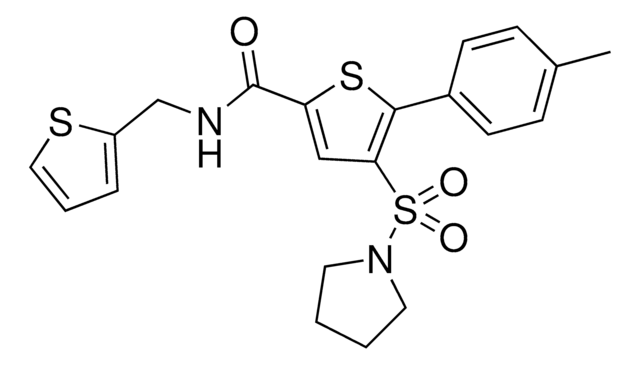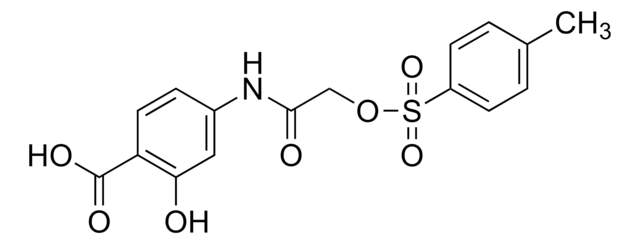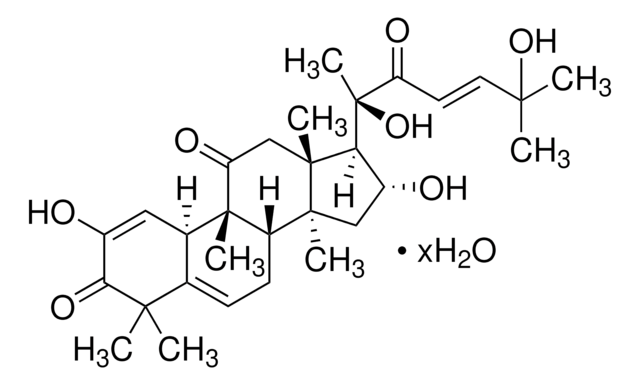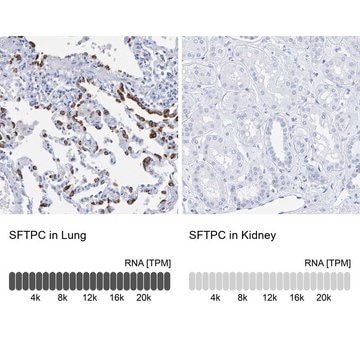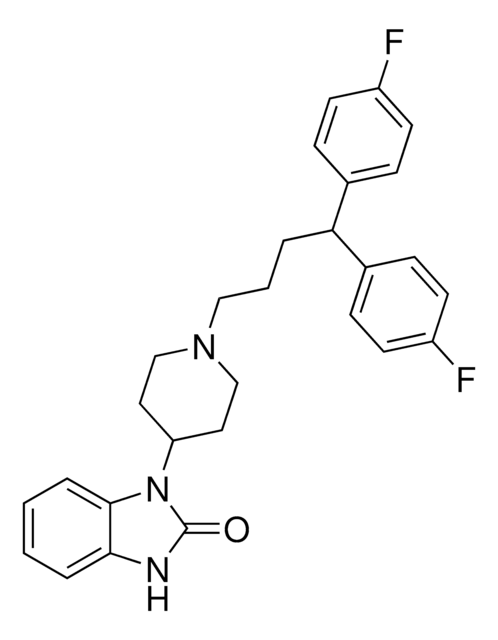573097
STAT3 Inhibitor III, WP1066
STAT3 Inhibitor III, WP1066, CAS 857064-38-1, is a cell-permeable AG490 tyrphostin analog that acts as a STAT3 pathway inhibitor. A potent anti-tumor agent.
Synonym(s):
STAT3 Inhibitor III, WP1066
About This Item
Recommended Products
Quality Level
assay
≥97% (HPLC)
form
solid
manufacturer/tradename
Calbiochem®
storage condition
OK to freeze
protect from light
color
off-white
solubility
DMSO: 10 mg/mL
ethanol: 5 mg/mL
shipped in
ambient
storage temp.
2-8°C
InChI
1S/C17H14BrN3O/c1-12(13-6-3-2-4-7-13)20-17(22)14(11-19)10-15-8-5-9-16(18)21-15/h2-10,12H,1H3,(H,20,22)/b14-10+/t12-/m0/s1
InChI key
VFUAJMPDXIRPKO-LQELWAHVSA-N
General description
Biochem/physiol Actions
STAT3 pathway
Packaging
Warning
Reconstitution
Other Notes
Legal Information
Storage Class
11 - Combustible Solids
wgk_germany
WGK 2
flash_point_f
Not applicable
flash_point_c
Not applicable
Certificates of Analysis (COA)
Search for Certificates of Analysis (COA) by entering the products Lot/Batch Number. Lot and Batch Numbers can be found on a product’s label following the words ‘Lot’ or ‘Batch’.
Already Own This Product?
Find documentation for the products that you have recently purchased in the Document Library.
Customers Also Viewed
Our team of scientists has experience in all areas of research including Life Science, Material Science, Chemical Synthesis, Chromatography, Analytical and many others.
Contact Technical Service
